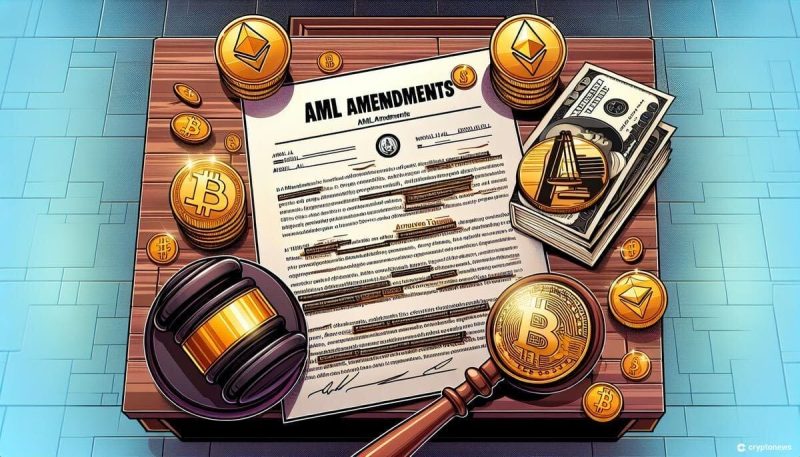On July 16, Taiwan’s parliament approved revisions to its anti-money laundering (AML) regulations, mandating crypto providers in the country to register for AML compliance. Failure to comply may result in severe penalties, including up to two years in prison or fines of up to NT$5 million (approximately $153,817).
Complete AML Procedures or Face Up to Two Years Behind Bars
As reported by a local news outlet, the new legislation requires entities providing crypto services in Taiwan to complete their AML procedures and register fully to become virtual asset providers (VASPs).
Taiwan’s new laws require businesses or individuals providing virtual asset or third-party payment services to follow anti-money laundering rules and register their service capabilities.
Non-compliance may result in up to two years’ imprisonment or a fine of NT$5 million.
— Cryptopeas (@CryptoPeas_) May 10, 2024
The amendments also cover domestic and foreign currency dealer regulations and special money laundering crimes.
Specific categories have been established for money laundering involving virtual asset accounts and third-party payment accounts. Defaulting crypto service providers in these categories face prison sentences from 6 months to 5 years and fines up to NT$50 million.
Under the new amendments, overseas crypto platforms must establish local entities and apply for AML registration to avoid criminal penalties.
Since 2021, the Financial Supervisory Commission (FSC) has mandated compliance with AML laws for crypto service providers in Taiwan. This regulatory effort aims to ensure strict adherence to laws, maintaining regulatory stability in the crypto market.
Also in March, the FSC revealed plans to propose a new draft of digital asset regulations in September 2024. The draft bill will create effective regulations for the digital asset market, ensuring the safety of investors.
Taiwan’s Stance on Financial Malpractice and Market Protection
Taiwan’s Anti-Money Laundering (AML) regulations, known as the “New Four Laws to Combat Fraud,” cover four key areas: Fraud Crime Harm Prevention Regulations, Money Laundering Prevention Law, Technology Investigation and Security Law, and Communications Security and Supervision Law.
These laws create a robust framework to combat fraud and money laundering, underscoring Taiwan’s commitment to financial integrity.
Meanwhile, Kevin Cheng, Secretary General of the Taiwan Fintech Association, highlighted the potential challenges for businesses that haven’t completed AML declarations under the new amendments. He stated that such businesses face prolonged waiting periods amid ongoing uncertainty about review standards
Notably, Taiwan remains steadfast in enforcing strict supervision and internal controls to boost transparency and combat money laundering.
According to Deputy Chairman Qiu Shuzhen of the FSC, 25 virtual currency exchanges have submitted legal compliance statements to fight money laundering in Taiwan.
Recall that Binance collaborated with Taiwan to resolve a crypto-assisted money laundering case. Crypto News reported in May that the investigation centred around illicit funds of about NT$200 million (approximately $6 million).
Overall, these legislative initiatives underscore Taiwan’s unwavering stance against financial malpractice. It strives to establish a secure environment for virtual asset exchange and promote legal protection and market stability.
The post Taiwan Tightens AML Regulations for Virtual Asset Providers appeared first on Cryptonews.


